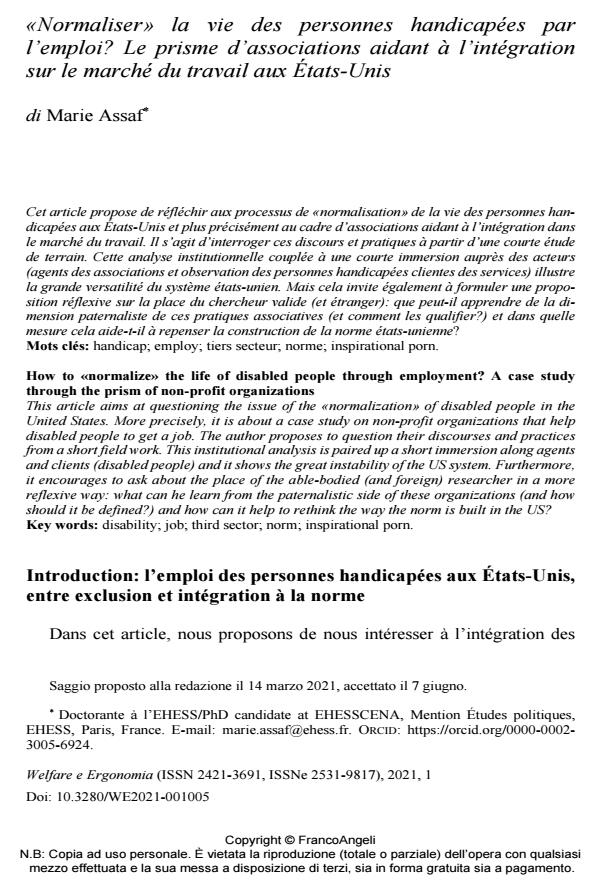How to «normalize» the life of disabled people through employment? A case study through the prism of non-profit organizations
Journal title WELFARE E ERGONOMIA
Author/s Marie Assaf
Publishing Year 2021 Issue 2021/1
Language French Pages 11 P. 40-50 File size 172 KB
DOI 10.3280/WE2021-001005
DOI is like a bar code for intellectual property: to have more infomation
click here
Below, you can see the article first page
If you want to buy this article in PDF format, you can do it, following the instructions to buy download credits

FrancoAngeli is member of Publishers International Linking Association, Inc (PILA), a not-for-profit association which run the CrossRef service enabling links to and from online scholarly content.
This article aims at questioning the issue of the «normalization» of disabled people in the United States. More precisely, it is about a case study on non-profit organizations that help disabled people to get a job. The author proposes to question their discourses and practices from a short field work. This institutional analysis is paired up a short immersion along agents and clients (disabled people) and it shows the great instability of the US system. Furthermore, it encourages to ask about the place of the able-bodied (and foreign) researcher in a more reflexive way: what can he learn from the paternalistic side of these organizations (and how should it be defined?) and how can it help to rethink the way the norm is built in the US?
Keywords: disability; job; third sector; norm; inspirational porn.
Marie Assaf, «Normaliser» la vie des personnes handicapées par l’emploi? Le prisme d’associations aidant à l’intégration sur le marché du travail aux États-Unis in "WELFARE E ERGONOMIA" 1/2021, pp 40-50, DOI: 10.3280/WE2021-001005